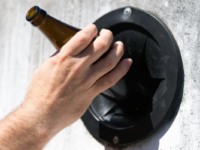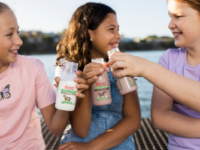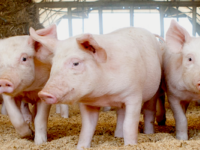Meat processing giant JBS Australia has succeeded in convincing the competition regulator that there is no negative market impact from its bid to acquire Rivalea, including its pork farming operations across NSW and Victoria and two pork processing facilities located at Corowa and Laverton (Diamond Valley Pork).
In a preliminary finding released in September, the Australian Competition and Consumer Commission (ACCC), said that while JBS and Rivalea do not compete closely, the proposed acquisition may give rise to vertical integration concerns.
But in a final decision issued Thursday, the commission changed its tune.
“The ACCC found that the proposed acquisition is unlikely to substantially lessen competition in pork production and processing markets and therefore will not breach the Competition and Consumer Act,” said ACCC deputy chair Mick Keogh.
Welcoming the decision, JBS said in a statement that it engaged and worked constructively with the ACCC and key customers and stakeholders “to assure them that JBS intends to have a business as usual approach to the Rivalea operations”.
JBS processes and supplies fresh pork, value-added pork products and pork smallgoods to wholesalers and retailers in Australia, including through its subsidiary Primo. It also operates a pig abattoir and processing facility in South Australia.
At the core of the ACCC’s earlier concern was that JBS may gain the incentive – particularly due to its ownership of Primo – to frustrate service kills at that abattoir by increasing prices, offering less favourable terms, or foreclosing access.
“The ACCC is also concerned that JBS may increase the price of fresh pork or reduce supply to competing smallgoods producers and pork wholesalers.”
However this week the ACCC said these concerns were now alleviated.
“Although Diamond Valley Pork (DVP) is a very important asset in the supply chain, we consider that a strategy to foreclose or frustrate access to service kill customers is unlikely as it would create significant commercial risks for JBS, including a loss of throughput and profit at Diamond Valley Pork,” said Keogh.
The ACCC found it unlikely that JBS would have the incentive to foreclose or frustrate access to fresh domestic pork for its wholesale and smallgoods competitors.
“Fresh pork can be transported significant distances, so there are alternative places where wholesalers can acquire fresh pork if JBS refuses supply,” he said.
In addition, while there are some exceptions, the ACCC found that the majority of pork used for smallgoods manufacturing can be substituted with pork sourced from other places, including imports. This will continue to provide a strong competitive constraint on JBS for most smallgoods manufacturers.
JBS says it will continue to provide kill services at DVP for customers and also grow the customer base. “We have provided this assurance directly to all DVP customers in writing, to local pork groups including the Victorian Farmers Federation and to the ACCC,” the company said in the statement.
“JBS has a long and proud history of supporting and growing its Australian businesses – investing heavily in its local operations and domestic brands, while at the same time providing employment opportunities and supporting the regional economies in which we operate. We will employ this same locally-minded approach at Rivalea.”
The last condition to be satisfied before the deal can proceed is approval from the Foreign Investment Review Board (FIRB).

















